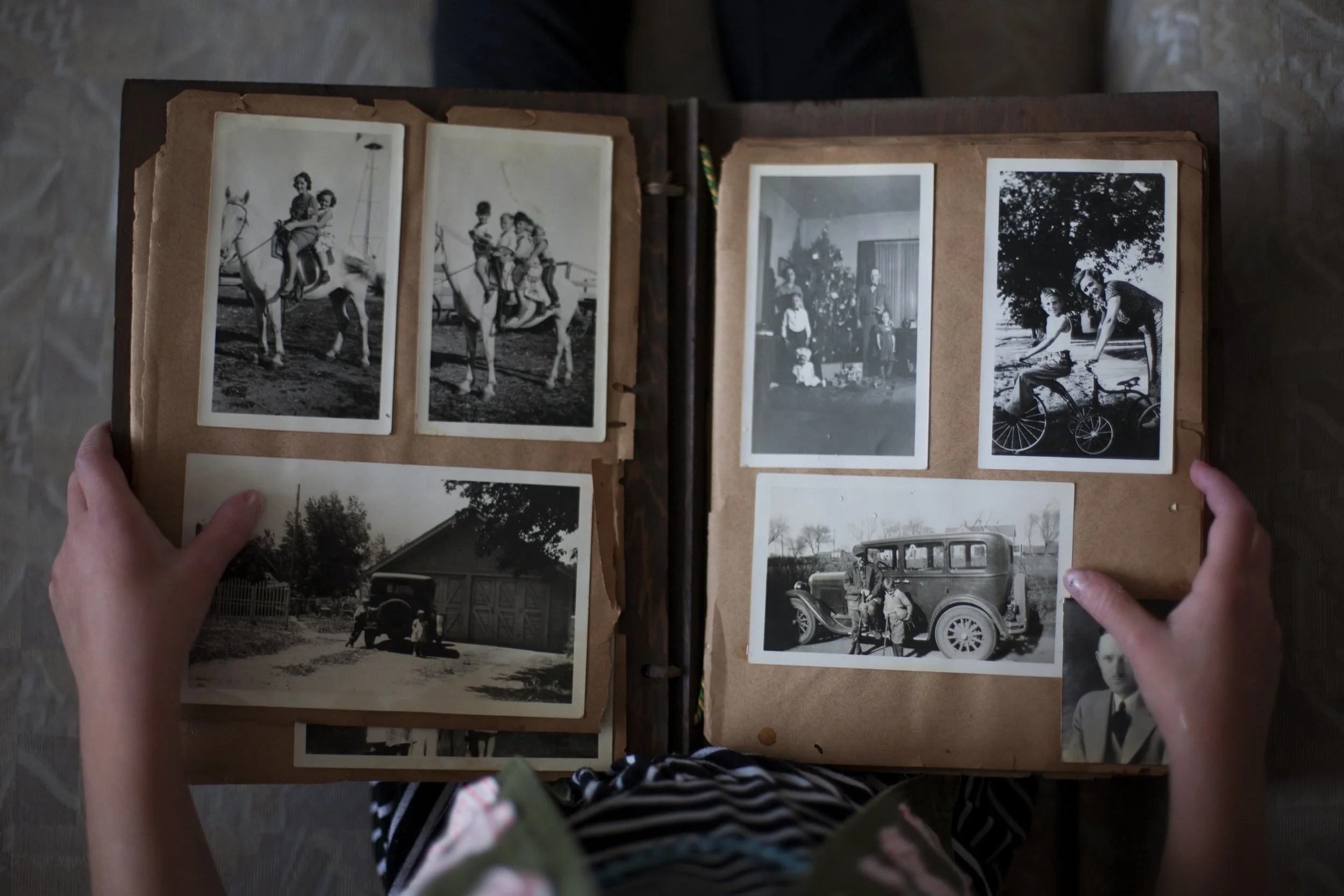As I mentioned in the first post of this study, we'll continually hear God's still small voice about one critical verb to know and do as a Christ-follower: persevere. This week, we’ll talk about perseverance specifically in the context of dwelling with God and the action it implies.
1 Now the leaders of the people dwelt at Jerusalem; the rest of the people cast lots to bring one out of ten to dwell in Jerusalem, the holy city, and nine-tenths were to dwell in other cities. 2 And the people blessed all the men who willingly offered themselves to dwell at Jerusalem.
Even though thousands of Jews traveled out of Babylon to come to Jerusalem, they didn’t all dwell in the actual city of Jerusalem. Despite both the temple and the walls being rebuilt – along with the reestablishment of worship – Jerusalem was still a ghost town.
According to Strong’s, the word dwell means “to remain, to marry, inhabit, to sit.” You would think the holy seed (Israel) would want to abide in their holy city. Yet, many heard the beckoning of the outer cities and chose to dwell there instead.
There is a clear parallel here between these first two verses and our spiritual lives. Jesus tells us in John 8:31, “If you abide in My word, you are my disciples indeed.” He’s stating that there is an action required of us to stay connected – just like there was an action required of the Jews to move from an outer city into Jerusalem.
Where are you dwelling today? Where are you sitting? Have the temptations and neon lights from the outer cities beckoned you to come and “vacation” there? Or, maybe you’re just flirting with the idea of prying open those city gates just to get a glimpse of what’s on the other side.
When you go to the mall or downtown areas, oftentimes you’ll find a map with a “YOU ARE HERE” dot or arrow to help you determine your location. Today, spend some time allowing God to reveal to you the truth of where you are today in terms of dwelling with Him. Knowing and accepting the truth is the first step to being in the right location with Christ. I know when I gave this some thought, God showed me how easily distracted I am. I start out focusing on one task and then that leads me to something else and then to something else and before I know it, my day is gone and while I’ve accomplished a long list of to-dos, I haven’t chosen the better part (see Luke 10:42) and spent enough quality time with Him.
3 These are the heads of the province who dwelt in Jerusalem. (But in the cities of Judah everyone dwelt in his own possession in their cities—Israelites, priests, Levites, Nethinim, and descendants of Solomon’s servants.) 4 Also in Jerusalem dwelt some of the children of Judah and of the children of Benjamin.
The children of Judah: Athaiah the son of Uzziah, the son of Zechariah, the son of Amariah, the son of Shephatiah, the son of Mahalalel, of the children of Perez; 5 and Maaseiah the son of Baruch, the son of Col-Hozeh, the son of Hazaiah, the son of Adaiah, the son of Joiarib, the son of Zechariah, the son of Shiloni. 6 All the sons of Perez who dwelt at Jerusalem were four hundred and sixty-eight valiant men.
Notice what the last two words of verse six are: valiant men. This word appears 35 times in the NKJV of the Bible. These were men who were champions, who excelled, who were strong and upright.
We studied about valiant men in 1 Samuel and it’s a beautiful adjective to have penned along with your name. We are all called to be valiant men and women of God. Hebrews 11:32-34 says, “And what more shall I say? For the time would fail me to tell of Gideon and Barak and Samson and Jephthah, also of David and Samuel and the prophets: who through faith subdued kingdoms, worked righteousness, obtained promises, stopped the mouths of lions, quenched the violence of fire, escaped the edge of the sword, out of weakness were made strong, became valiant in battle, turned to flight the armies of the aliens. Women received their dead raised to life again.” Notice that it says these individuals became valiant in battle. They weren’t necessarily valiant before, but God’s strength equipped them when it was time. In 2 Chronicles 20 it talks about how the Israelites went into battle giving thanks! That is how we become valiant men and women in battle – by giving thanks and praising the Lord, for His mercy endures forever!
7 And these are the sons of Benjamin: Sallu the son of Meshullam, the son of Joed, the son of Pedaiah, the son of Kolaiah, the son of Maaseiah, the son of Ithiel, the son of Jeshaiah; 8 and after him Gabbai and Sallai, nine hundred and twenty-eight. 9 Joel the son of Zichri was their overseer, and Judah the son of Senuah was second over the city.
10 Of the priests: Jedaiah the son of Joiarib, and Jachin; 11 Seraiah the son of Hilkiah, the son of Meshullam, the son of Zadok, the son of Meraioth, the son of Ahitub, was the leader of the house of God. 12 Their brethren who did the work of the house were eight hundred and twenty-two; and Adaiah the son of Jeroham, the son of Pelaliah, the son of Amzi, the son of Zechariah, the son of Pashhur, the son of Malchijah, 13 and his brethren, heads of the fathers’ houses, were two hundred and forty-two; and Amashai the son of Azarel, the son of Ahzai, the son of Meshillemoth, the son of Immer, 14 and their brethren, mighty men of valor, were one hundred and twenty-eight. Their overseer was Zabdiel the son of one of the great men.
15 Also of the Levites: Shemaiah the son of Hasshub, the son of Azrikam, the son of Hashabiah, the son of Bunni; 16 Shabbethai and Jozabad, of the heads of the Levites, had the oversight of the business outside of the house of God; 17 Mattaniah the son of Micha, the son of Zabdi, the son of Asaph, the leader who began the thanksgiving with prayer; Bakbukiah, the second among his brethren; and Abda the son of Shammua, the son of Galal, the son of Jeduthun. 18 All the Levites in the holy city were two hundred and eighty-four.
19 Moreover the gatekeepers, Akkub, Talmon, and their brethren who kept the gates, were one hundred and seventy-two.
The names given are associated with those who dwelled in Jerusalem. Just as God knows exactly who dwells with Him, so did Nehemiah (because he conducted a census). 2 Timothy 2:19 reminds us of this very thing: “Nevertheless, the solid foundation of God stands, having this seal: ‘The Lord knows those who are His’…”
What a reassurance to know that no matter how the world labels me, rejects me, or bruises me – I am eternally the Lord’s and cannot be plucked from His hand (John 10:28). Rest in this truth!
20 And the rest of Israel, of the priests and Levites, were in all the cities of Judah, everyone in his inheritance. 21 But the Nethinim dwelt in Ophel. And Ziha and Gishpa were over the Nethinim.
22 Also the overseer of the Levites at Jerusalem was Uzzi the son of Bani, the son of Hashabiah, the son of Mattaniah, the son of Micha, of the sons of Asaph, the singers in charge of the service of the house of God. 23 For it was the king’s command concerning them that a certain portion should be for the singers, a quota day by day. 24 Pethahiah the son of Meshezabel, of the children of Zerah the son of Judah, was the king’s deputy in all matters concerning the people.
25 And as for the villages with their fields, some of the children of Judah dwelt in Kirjath Arba and its villages, Dibon and its villages, Jekabzeel and its villages; 26 in Jeshua, Moladah, Beth Pelet, 27 Hazar Shual, and Beersheba and its villages; 28 in Ziklag and Meconah and its villages; 29 in En Rimmon, Zorah, Jarmuth, 30 Zanoah, Adullam, and their villages; in Lachish and its fields; in Azekah and its villages. They dwelt from Beersheba to the Valley of Hinnom.
31 Also the children of Benjamin from Geba dwelt in Michmash, Aija, and Bethel, and their villages; 32 in Anathoth, Nob, Ananiah; 33 in Hazor, Ramah, Gittaim; 34 in Hadid, Zeboim, Neballat; 35 in Lod, Ono, and the Valley of Craftsmen. 36 Some of the Judean divisions of Levites were in Benjamin.
Notice that in verse 20, it talks of “the rest of Israel, of the priests and Levites…” While there were Levites within the city of Jerusalem serving, there were also those dispersed in around the kingdom of Judah. Why? Because there had to be a ministry outside the walls too. Acts 1:8 tells us that “…you will receive power when the Holy Spirit comes on you; and you will be my witnesses in Jerusalem, and in all Judea and Samaria, and to the ends of the earth.” Ask God for the Holy Spirit to come upon you so that you can be a light for Him wherever you go! Amen.





















